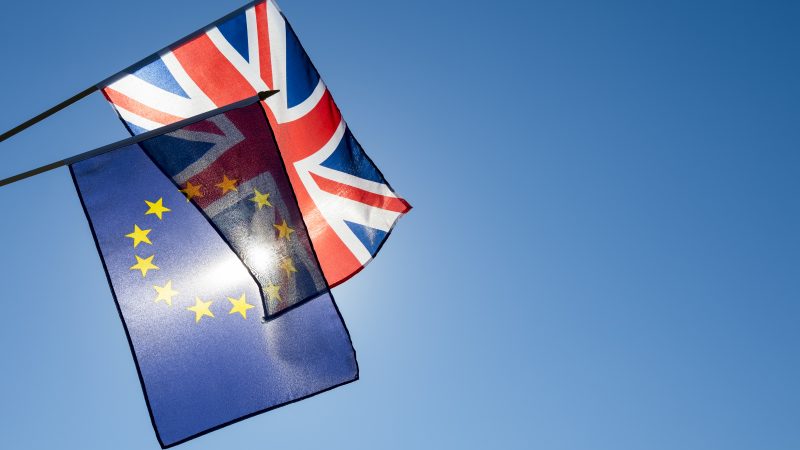
I do hope that the poor soul who designed Labour’s Brexit stance has had time to relax over Christmas. Coming up with a policy that satisfies Labour’s heavily Remain-leaning membership, while keeping hold of Leave voters in the North and Midlands can’t have been easy.
Consequently, as we argue in UK in a Changing Europe’s upcoming report on the UK-EU relationship, Labour’s policy since 2019 has been to criticise the government and point out what Labour wouldn’t do rather than spell out an alternative. ‘Making Brexit work’ or ‘sorting out the Northern Ireland protocol’ are admirable objectives, but voters were left in the dark about how the party would achieve them.
And then, in 2022, Starmer did begin to get into specifics. Sort of. He ruled out single market membership and committed to signing a veterinary agreement that would eliminate a number of checks between Britain and Northern Ireland. In other words, Labour committed to tinkering round the edges of the current arrangement, but the party won’t be seeking a much closer relationship with the EU.
Arguably this approach – avoiding getting drawn into a debate on the UK-EU relationship while reaffirming a commitment to Brexit – makes sense at a time when people are struggling to pay their bills and make it through the winter. Voters simply don’t consider Brexit to be a priority anymore. At the end of December, only 18% of the public considered the UK-EU relationship to be one of the most important issues facing the country – compared with 72% in early 2019.
And Starmer’s method does seem to be working. Labour is leading the Tories by 21% in the polls, and voters tend to think that he would make the better Prime Minister of the two options available. Furthermore, his approach has, to some extent, helped to combat the image of Labour as a ‘Remainer’ party, which is key to attracting back some of those votes lost in 2019. Data collected as part of our Brexit public opinion tracker shows that the number of people who believe that Labour is in favour of rejoining the EU has fallen over the last year.
There doesn’t, therefore, seem to be any incentive for the party to change its strategy. But, as we enter 2023, the polling increasingly suggests that tinkering around the edges of the current agreement may not be what voters want. Throughout last year, voters became more likely to say that leaving the EU was the wrong thing to do. A clear majority emerged in favour of rejoining – peaking at a 14% lead for rejoin in October. Voters have also become increasingly likely over the last 12 months to draw a link between Brexit and their day-to-day lives. More than 60% of respondents agree that their cost of living has increased as a result of Brexit.
Crucially, this increasingly negative view of the impact of Brexit on the UK economy is shared by Leavers and Remainers. Although people who voted Remain have been significantly more likely to hold this view across the year, a good portion of Leavers now do too – peaking at 35% in October 2022, up from 26% at the start of the year. Yet Labour’s current approach would do little to mitigate the economic impact of leaving the EU. A stronger position would surely appeal to voters facing record levels of inflation and the onset of a recession.
That doesn’t mean that Labour should abandon its commitment to staying outside the EU and respecting the mandate of Brexit. Most voters, including a good portion of Remainers, tend to think that politicians should focus on making the best of it. Some four in five people would still vote how they did in 2016, and voters over 50 – increasingly Labour’s Achilles heel – are the least likely to have changed their view on Brexit.
But if public opinion continues to follow its current trajectory, and voters continue to link the economic situation to Brexit, a more proactive approach may be needed. Labour needs to start to think about what it will deliver in government and how it will work with the EU not just in theory, but in practice.
Starmer could, for example, backtrack on his outright rejection of any Swiss-style deal with the EU and say that a Labour government would more closely align with Europe in some key areas. Our polling shows that aligning with European regulations on goods and food and mutual recognition of qualifications is more popular than not across Labour voters, Conservative voters, Leavers and Remainers.
Outlining a clear plan would be beneficial given that 14% of the electorate say Labour has no clear policy on Brexit, down just 1% since the beginning of 2022. Reaffirming that Labour would keep the UK out of the EU, whilst clearly outlining how the UK can work with Europe to the benefit of the British economy and security would help to solve this issue while reassuring swing voters that Labour is not the party of Remain.
Labour has certainly made some progress in shaking off its Remainer reputation. At a time when Brexit isn’t a priority for many voters, perhaps maintaining a non-committal position on Europe will pay dividends at the next election. But if public opinion continues to shift – and it might under the impact of the continuing economic crisis – the party may need to rethink its approach. It’s certainly enough to keep the Labour staffer in charge of the party’s Brexit policy awake at night.




More from LabourList
Ashley Dalton resigns as health minister for cancer treatment
Paul Nowak column: ‘Labour must focus on the basics’
‘Labour’s two-child cap victory rings hollow while asylum-seeking children remain in poverty’